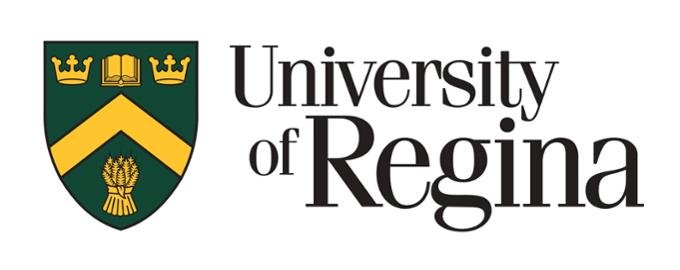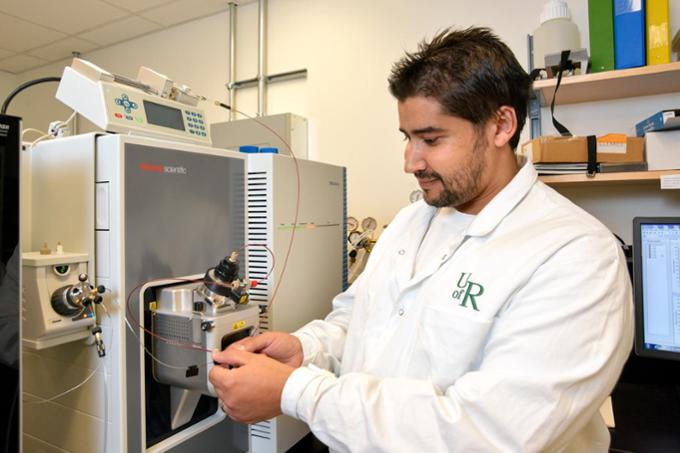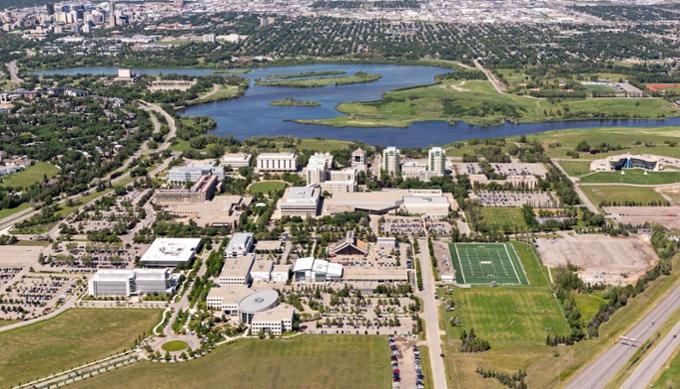
Regina Research Alliance
Building a Stronger Community
In April of 2022, the University of Regina and City of Regina formally agreed to work together on mutually beneficial initiatives through a Memorandum of Understanding (MOU). Both organizations recognize the value of collaboration and work closely to identify and pursue opportunities that benefit both parties and contribute to creating a livable, prosperous, and sustainable city and campus community.

Regina Research Stories
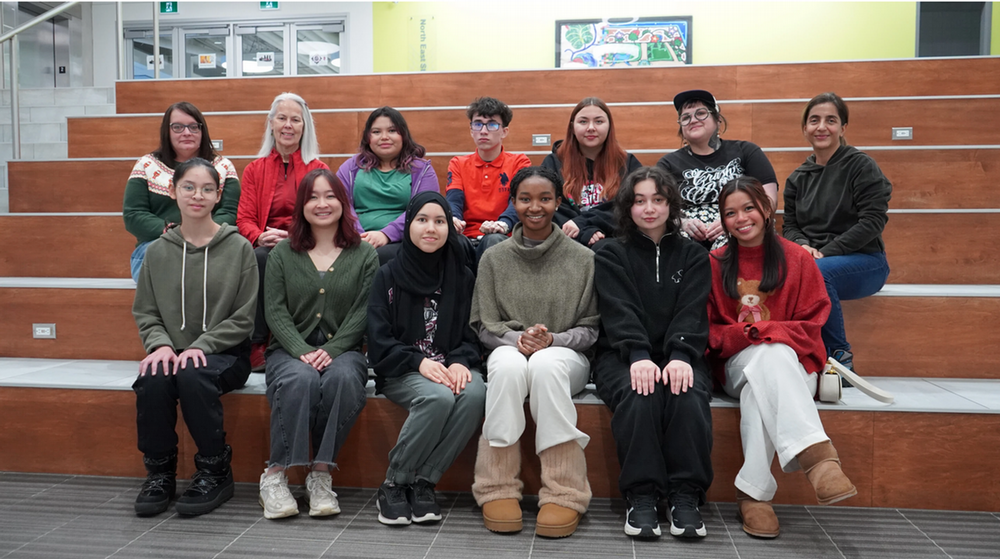
Creating Neighbourhoods that Support Youth Mental Health
Dr. Akram Mahani and her team from the University of Regina’s Johnson Shoyama Graduate School of Public Policy will be recognized at the 2026 Santé Awards with an Excellence Award from Saskatchewan Health Research Foundation (SHRF).
She is being honoured as the highest-ranked application within SHRF’s 2024-25 Solutions Impact Grant competition for her project, “Key Features of Neighbourhoods that Support Youth Mental Health,” which was co-funded by SHRF, Jim Pattison Children's Hospital Foundation (JPCHF). and Saskatchewan Centre for Patient-Oriented Research (SCPOR).
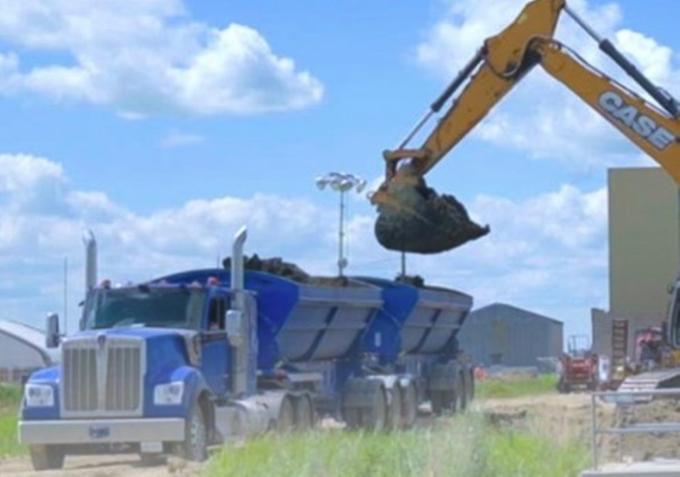
Transforming Sludge
Water treatment plants are essential to public health and our economy. But water treatment itself generates large amounts of waste and can be a challenge to our environment if not managed properly.
A new collaboration between University of Regina associate professor of environmental systems engineering has teamed up with the Buffalo Pound Water Treatment Corporation to create something useful out of that waste – saving money and the planet at the same time.
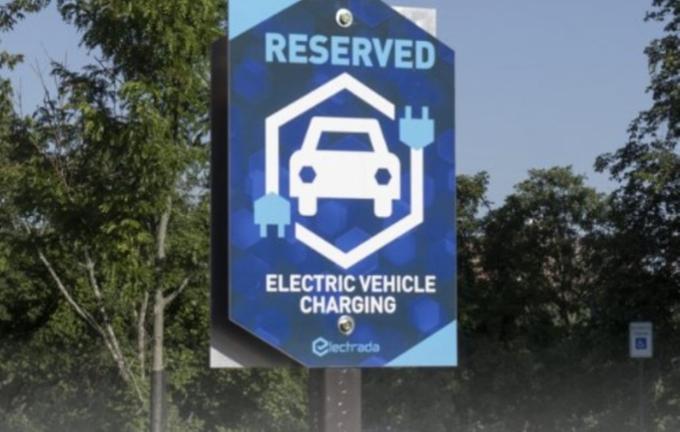
If you build it, will they run?
When Victoria Martinez and her young family rolled into Davidson to charge up their 2020 Hyundai Ioniq on the Canada Day long weekend, what has typically been a 45-minute battery top-up turned into a nearly three-hour long exercise in frustration.
Martinez and her partner usually plug into the town’s free Level 2 (L2) charger, then walk over to browse the stacks at the regional public library or shop for treasures at the Field’s store. But this trip they decided to try out the new Flo fast charger a short distance outside Davidson. The L3 port on their electric vehicle (EV) wouldn’t play nice with the charger, which led to a few hours of ultimately unsuccessful troubleshooting with the company’s customer support line.
Past and Current Projects
This research aims identify features of communities that support the mental health of youth through a participatory, community-based approach. This study will be conducted over 2 years and will use both creative and data-driven methods including qualitative art-based methods and Delphi technique to achieve four objectives:
- Explore how neighborhood features affect youth mental health
- Identify the key qualities of mental health-friendly neighborhood
- Understand youth perspectives on ideal neighbourhood design for mental health
- Prioritize these neighborhood elements
The research will focus on two inner-city communities (North Central and Heritage) and two suburban communities (Harbour Landing, and Glencairn) to understand how different urban environments influence youth mental health. In these four communities, youth will share their perspectives through photovoice and digital storytelling, capturing their visions of spaces that support mental health. A two-round consensus-building process will help them prioritize these features. This research will hopefully promote the planning of healthier, more inclusive urban spaces and integrate the youth perspective in shaping future city designs to revitalize inner city areas and support balanced urban growth.
To date, the research team is currently planning six art workshops for youth in the four selected neighbourhoods. Recruitment of youth participants is set to begin shortly, and launching of the workshops should happen by mid-September 2025. Read more
|
Date: |
2025 - 2027 |
|
UofR Lead: |
Akram Mahani, MHA Program Director and Associate Professor, |
|
City Lead: |
Kim Sare, Senior City Planner; Bill Neher (Manager of Housing); |
|
Status: |
Active |
|
Partners: |
University of Regina, City of Regina, Saskatchewan Health Authority, |
Build Greener Roads for Our City: U of R Joins Forces to Turn Waste into Opportunity.
The University of Regina is partnering with Saskatchewan Polytechnic and the City of Regina on an innovative research project that seeks to transform construction wastes, such as concrete rubble and asphalt millings, into high-value materials for road and alley reconstruction. This tri-party collaboration aims to reduce reliance on virgin aggregates which can be described as rocks, sand, gravel and other materials newly mined from the ground by incorporating recycled materials into the City’s infrastructure, aligning with broader goals of environmental sustainability and the circular economy.
A team from the Cold-Region Water Resource Recovery Laboratory (CRWRRL) at the University of Regina is leading a comprehensive environmental risk assessment of these recycled materials. The research focuses on the potential leaching of heavy metals like lead, zinc or copper and organic pollutants under real-world conditions, such as freeze-thaw cycles and changing moisture levels. The findings will inform whether these recycled materials are safe and sustainable alternatives for use beneath sidewalks, alleys, and roads.
The Saskatchewan Polytechnic scope of work will focus on the testing of recycled materials as the granular base for concrete and asphalt products for use in roads, sidewalks, and alleyways in the City of Regina. This study would address concerns associated with load capacity and durability. Saskatchewan Polytechnic will provide research, testing, a summary of best practices, and cost analysis regarding the use of recycled materials as aggregate base products.
In addition to improving sustainability and reducing construction costs, this initiative significantly contributes to landfill diversion by repurposing large volumes of construction debris that would otherwise occupy valuable landfill space.
This collaboration not only supports municipal goals for greener infrastructure but also offers real-world, hands-on training opportunities for University of Regina students in environmental engineering and infrastructure research.
Together, the U of R and its partners are paving the way, literally and figuratively, for smarter, cleaner, and more resilient cities.
|
Date: |
2025 - 2026 |
|
UofR Lead: |
Jinkai Xue, Associate Professor, Engineering and Applied Science |
|
City Lead: |
Chris Campbell, Manager, Roadways Capital Operations |
|
Status: |
Active |
|
Partners: |
University of Regina, City of Regina, Saskatchewan Polytechnic |
The City of Regina is working to increase renewable energy and lower greenhouse gas emissions in Regina. In this research project, University of Regina researchers will survey the Regina public to understand what Regina residents know about clean energy technologies and whether they have adopted or are planning to adopt technologies like solar panels or electric vehicles, as well as other behaviours that support a low-emissions community like active modes of transportation and reducing home energy use. This work supports Regina’s target to become a renewable, net-zero emissions community by 2050 by understanding more about actions identified in the City of Regina’s Energy and Sustainability Framework. This project is supported in part by an in-kind contribution from the University of Regina.
|
Date: |
2024 - 2025 |
|
UofR Lead: |
Brett Dolter, Associate Professor, Department of Economics |
|
City Lead: |
Robbi Humble, Manager, Sustainable Energy & Adaptation |
|
Status: |
Active |
|
Partners: |
University of Regina, City of Regina |
The Prairie Adaptation Research Collaborative (PARC) is assisting the City of Regina with developing a Corporate Climate Adaptation Strategy that will incorporate climate resilience into city planning, the delivery of City services, and infrastructure design, maintenance and operations. The goals of the Corporate Climate Adaptation Strategy are to:
- Optimize allocation of financial resources to actions that will have the most significant impact on climate resilience.
- Improve natural resource planning to address climate change impacts as efficiently and effectively as possible.
- Identify and bridge gaps in existing City plans and frameworks to ensure the City’s approach to understanding and addressing climate change risks is aligned across all levels of the corporation.
In support of this Strategy, PARC is:
- Providing climate model projections of anticipated changes to Regina’s future climate.
- Undertaking a risk and vulnerability assessment of the City’s current services.
- Developing a stakeholder engagement strategy to incorporate critical input from all branches and departments.
- Reviewing existing City policies, processes and standards, with a specific focus on the City’s Energy & Sustainability Framework.
- Reviewing strategic principles to assess organizational climate resilience.
- Helping the City with identifying and prioritizing actions to integrate climate resilience throughout the organization.
This collaborative research will be completed by August 2025 so that the Mayor and Council can consider the Corporate Climate Adaptation Strategy during the Fall of 2025.
|
Date: |
2024 - 2025 |
|
UofR Lead: |
David Sauchyn, Professor, Geography and Environmental Studies and Director, Prairie Adaptation Research Collaborative |
|
City Lead: |
Kineni Debia, Sustainability and Adaptation Consultant and Robbi Humble, Manager, Sustainable Energy and Adaptation |
|
Status: |
Active |
|
Partners: |
City of Regina, Prairie Adaptation Research Collaborative at the University of Regina |
There is a growing recognition of how the built environment facilitates active living, healthy eating, and social belonging, leading to better health outcomes. This project aims to engage with municipal urban planners to help us contextualize factors that influence active lifestyles and optimize the use of walkability and urban sprawl data. Similarly, engaging with knowledge users from the Saskatchewan Health Authority can help us better understand how health information is measured and operationalized in the administrative databases. This research is crucial in bridging the knowledge gap on healthy cities research and can inform urban designers, planners, and health policymakers to develop interventions for the built environment while promoting health, preventing disease, and containing rising healthcare costs. This project is funded by a Saskatchewan Health Research Foundation Align Grant.
|
Date: |
2024 |
|
UofR Lead: |
Harminder Guliani, Associate Professor, Department of Economics Katya Herman, Associate Professor, Faculty of Kinesiology and Health Studies Akram Mahani, Assistant Professor, Johnson Shoyama Graduate School of Public Policy |
|
City Lead: |
Kim Sare, Senior City Planner, Revitalization Branch |
|
Status: |
Active |
|
Partners: |
University of Regina, City of Regina, University of Saskatchewan, Saskatchewan Health Authority |
From 2011 to 2023, the University of Regina carried out biennial random-dialed phone surveys to better understand the public’s perceptions of the Regina Police Service. The main areas of interest are: Public Information and Social Media, Visibility and Presence, Trust and Confidence, Crime and Fear of Crime, and Quality of Service. The survey represents one assessment tool as well as an opportunity for the public to provide feedback anonymously on a range of topics. Read more.
|
Date: |
2025, 2023, 2021, 2019, 2017, 2015, 2013, 2011 |
|
UofR Lead: |
Nicholas Jones, Adam Vaughan, Rick Ruddell, Department of Justice Studies |
|
City Lead: |
Amy Balfour, Regina Police Service, Manager – Strategic Services |
|
Status: |
Ongoing |
|
Partners: |
University of Regina, Regina Police Service |
The lengthy purification process required to produce drinking-quality water also produces a large amount of sludge waste that is difficult and expensive to dispose of. Working with the Buffalo Pound Water Treatment Corporation – where both Regina and Moose Jaw get their water – Dr Xue’s team is creating useful products out of the sludge waste, saving money and helping the planet at the same time. One of those products is a lightweight, porous and highly absorptive ceramics-type material called ceramsite that can be used to remove pollutants from water. If that pollutant is phosphorous, for example, the ceramsite can then be sold as a landscape mulch where it will act as a slow-release fertilizer. Read more.
|
Date: |
2022-23 |
|
UofR Lead: |
Jinkai Xue, Engineering and Applied Science |
|
City Lead: |
Blair Kardash, Manager Laboratory & Research |
|
Status: |
Active |
|
Partners: |
UofR, Buffalo Pound Water Treatment Corporation |
By integrating membrane filtration and biodegradation into one system, membrane bioreactors (MBRs) can achieve excellent treatment performance with very small footprint and reduced sludge production. Due to the high costs and complexity of MBRs using traditional membranes, dynamic membrane bioreactors (DMBR) have gained increasingly more attention from the research community.
Dynamic membranes (DMs) can be made with inexpensive materials, such as nylon and stainless-steel mesh. The deposition of solids and growth of microorganisms on the DMs will eventually form a dynamic cake-layer that can be equivalent to microfiltration (MF) or even ultrafiltration (UF) membranes. In our ongoing NSERC Alliance project, a granular sludge-DMBR (GS-DMBR) is being developed for sustainable wastewater treatment and reuse in the Canadian Prairie climate, in which we found that DMs are very promising but traditional DMs are challenging to be made in the laboratory with high quality, flexibility in design, and consistency.
In this application, we aim at fabricating inexpensive yet robust membranes by 3D-printing. The localized and global configuration of the membrane module will be designed to optimize the hydrodynamic conditions in the reactor and minimize fouling propensity. The outcomes of this project will not only benefit the partners but also be applicable to wastewaters in other sectors, such as food processing wastewater, and landfill leachate.
|
Date: |
2022-23 |
|
UofR Lead: |
Jinkai Xue, Engineering and Applied Science |
|
City Lead: |
Shelley Wellman, Manager Environmental Services |
|
Status: |
Active |
|
Partners: |
University of Regina, City of Regina, Touchstone |
A research team led by professors at the University of Regina is drafting a roadmap that can inform and guide decisions about the EV infrastructure that will be required to support a net-zero transportation sector. A diverse group of researchers from the U of R’s Faculties of Engineering and Applied Science, and Business Administration – with expertise in transportation, smart grids, operations research, and renewable energy – will be working alongside specialists from SaskPower, the City of Regina, and Acuere Consulting Inc, an engineering consultancy.
With data provided by SaskPower and the City of Regina, the team will be investigating current traffic volumes and patterns to forecast demand for charging and how battery power will be consumed. They’ll be working to develop tools to help determine where charging stations should be located to support long-distance, east-west travel across Canada – by not only passenger vehicles but also commercial cargo trucks.
The team also wants to provide guidance on where to locate chargers in urban settings to prevent long lineups and congestion. Their aim is to create models that planners in government, municipalities, and utilities can use to anticipate charging needs down the road. Read more.
|
Date: |
2022-23 |
|
UofR Lead: |
Yilli Tang, Zhanle Wang, Engineering and Applied Science |
|
City Lead: |
Ravada Vikas, Senior Engineer Traffic |
|
Status: |
Active |
|
Partners: |
University of Regina, City of Regina, Acuere Consulting Inc., SaskPower |
The University of Regina conducted a comprehensive fact- and evidence-based literature and research review covering both the technical aspect and the policy aspect of the issue. Within the technical review, topics included current regulatory environment related to non-agricultural uses; review of the status quo and potential alternative approaches; and, the technical impact of maintaining the status quo or adopting alternatives with respect to benefits and risks. From a policy perspective, the University conducted a jurisdictional review and examined the implications of maintaining the status quo, taking action to ban or restrict, and adopting an alternative, integrated pest management approach.
|
Date: |
2022 |
|
UofR Lead: |
Christopher Yost, Vice-President (Research) |
|
City Lead: |
Russell Eirich, Department of Parks, Recreation and Cultural Services |
|
Status: |
Completed |
|
Partners: |
University of Regina, City of Regina |
Novel wastewater treatment technologies are needed to address the weaknesses of current techniques, and ensure the sustainability of wastewater treatment in the future. In the context of circular economy, conventional wastewater treatment technologies are no longer adequate because of high energy demand, large sludge production, green-house gas (GHG) emissions, inability to remove emerging pollutants (such as microplastics and antibiotics), and poor cold-temperature performance.
On the other hand, wastewater can be a valuable resource if technologies were available to cost-effectively extract the water resources, nutrients, and energy contained in it. In recognition of the challenges and opportunities in wastewater, the City of Regina has been seeking future-ready wastewater management strategies that can bring co-benefits. In this project, we will develop a novel granular sludge-dynamic membrane bioreactor (GS-DMBR) system for wastewater treatment in the Canadian Prairies climate. The removal of representative emerging pollutants (such as microplastics) will be optimized; resource recovery (such as clean water resources) will also be explored. Insights in the governing mechanisms will be established by using numerical and statistical tools.
The system configuration and operating scheme will be improved based on the wastewater quality and seasonality variations. We think the novel GS-DMBR technology will consume less energy, produce less sludge, emit less GHGs, and remove emerging pollutants more effectively in the Canadian context. The outcomes will not only benefit the partners, the City of Regina and QuantWave Technologies Inc., but also shed light onto sustainable wastewater management in Canada and internationally.
|
Date: |
2021-23 |
|
UofR Lead: |
Jinkai Xue, Engineering and Applied Science |
|
City Lead: |
Shelley Wellman, Manager Environmental Services |
|
Status: |
Completed |
|
Partners: |
University of Regina, City of Regina |
The digital library search interfaces offered by public libraries are often designed to maximize simplicity, supporting look-up tasks when searchers know precisely what they need (e.g., the exact name of a book). While such approaches may support the simple search tactics needed to find a specific item in the library, they provide little support when the search task is complex. Complex search tasks are characterized by ambiguity and uncertainty, may be multi-faceted, and could stem from complexity in the source information itself.
For example, a public library searcher may wish to find books on the history of western expansion in Canada, without knowing much else about the topic or how it relates to other political events such as the North-West Rebellion. In such cases, exploratory browsing may allow the searcher to learn about the topic, followed by focused searching to find supporting resources. Without features in the search interface to enable such exploratory search activities, the success of the search depends on the abilities and experience of the searcher.
The primary goals in this research are to (G1) develop a deeper understanding of the information seeking behaviour of public library patrons, (G2) design, implement, and study new visualization-enhanced approaches for digital library search interfaces that support exploratory search behaviours in both stationary and mobile device use, and (G3) study how the context of the search (in the library vs. out of the library; stationary vs. mobile device use) can be leveraged to more effectively assist the exploratory search behaviour of public library patrons. A new breed of public library search interface will be developed that uses interactive information visualization to support and enhance the exploratory search needs of public library patrons, enabling them to more readily find the information they are seeking.
|
Date: |
2020-23 |
|
UofR Lead: |
Orland Hoeber, Computer Science |
|
City Lead: |
Jeff Barber, Library Director & CEO, Regina Public Library |
|
Status: |
Active |
|
Partners: |
University of Regina, Regina Public Library, Sask Info & Library Services Consortium |
A deviation in the production of municipal solid waste has been observed in the City of Regina since the beginning of the COVID-19 pandemic began, and during the time control measures were put into place by the City and the Government of Saskatchewan. The change in waste generation rates could begin to impact the daily operation of the City's municipal waste collection and disposal service, as well as the safety of the solid waste collections and operations staff. Proper waste collection and disposal is vital to health and safety of the residents at any time, let alone during the COVID-19 pandemic.
Our municipal partner states that the elevated waste quantities has slowly begun to impact the revenue stream in the past few weeks. The goals of the project are to (i) conduct temporal analysis of municipal waste generation before and during the outbreak, and (ii) develop various scenarios and generate different forecast models for waste generation during and after the outbreak. Accurate waste data forecast helps the city to better manage its budgetary resources and plans their collection and disposal services accordingly. The proposed models will also be used to estimate the demand of the sanitation workers' personal protective wears. It is believed that the said simulation models will be useful to other cities and towns of similar socio-economic conditions as Regina.
No tool is currently available to forecast waste generation during and after a pandemic, and we would like to work with City of Regina team to fill the gap in literature. The proposed models will be of great benefit to the City in maintaining its leadership in sustainable waste management and evidence-based waste policy. It is also of interest to the City to assist in the growth of this market segment, both within Canada and abroad. Read more.
|
Date: |
2020-21 |
|
UofR Lead: |
Kelvin Ng, Golam Kabir, Engineering and Applied Science |
|
City Lead: |
Shayne Tracy, Department of Water, Waste & Environment |
|
Status: |
Completed |
|
Partners: |
University of Regina, City of Regina |
Public safety personnel (PSP), including municipal police and firefighters, are frequently exposed to potentially psychologically traumatic events. Such events contribute to substantial and growing challenges from posttraumatic stress injuries (PTSIs), including but not limited to posttraumatic stress disorder. This project involved implementation, testing, and continuous improvement of a set of evidence-based tools and training originally designed for the RCMP and adapted for a more diverse set of PSP. The objective of the tools and training is to protect PSP mental health. Read more.
|
Date: |
2020-21 |
|
UofR Lead: |
Nick Carleton, Department of Psychology |
|
City Lead: |
Laurel Marshall, Regina Police Service |
|
Status: |
Completed |
|
Partners: |
University of Regina, Regina Police Service, Regina Fire and Protective Services, CanOps, Saskatoon Police Service, Regina Emergency, Medical Services, Ottawa Emergency Medical Services, Saskatchewan Health Authority, University of Kentucky, University of Manitoba, University of Northern British Columbia, Wilfrid Laurier University, McGill University, Thompson Rivers University, Queen’s University, Western University, Memorial University of Newfoundland |
This research project contributes to filling current gaps in fire data by undertaking primary research into the incidence, circumstances and risk factors of careless cooking in the City of Regina, with a focus on high risk populations. The impetus behind this research project came from Regina Fire & Protective Services (RFPS). Careless cooking has been the number one cause of residential fires in Regina for seven years, and has become a significant threat to public safety. Careless cooking incidents have been increasing each year, a growing trend the fire department is working to curtail. Read more.
|
Date: |
2017 |
|
UofR Lead: |
Rozzet Jurdi-Hage, Department of Sociology and Social Studies |
|
City Lead: |
Candace Giblett, Angela Prawzick, Regina Fire and Protective Services |
|
Status: |
Complete |
|
Partners: |
University of Regina, Regina Fire and Protective Services |
The City of Regina is looking for ways to handle fats, oils and grease (FOG) that are disposed of into the wastewater system or removed from local businesses. The FOGs are notoriously difficult to manage due to their complex chemical makeup either individually or when combined. This study attempts to determine if the FOGs from wastewater and food establishment collected by the City can be converted into biodiesel.
|
Date: |
2016-17 |
|
UofR Lead: |
Raphael Idem, Faculty of Engineering and Applied Science |
|
City Lead: |
Lisa Pahl, Source Control Coordinator Helene Henning-Hill, Manager Sewer and Drainage Operations |
|
Status: |
Completed |
|
Partners: |
University of Regina, City of Regina |
Contact Us
Interested in learning more about research projects involving the U of R and the City of Regina? Do you have a project you'd like to move forward? Contact the University's Office of Research Partnerships & Innovation (ORPI) to get things started.
University of Regina
Office of Research Partnerships & Innovation
Gregory Mack, Director
Email: director.partnerships@uregina.ca
Phone: 306-337-2524
Scholarships, awards, and funding
City of Regina
